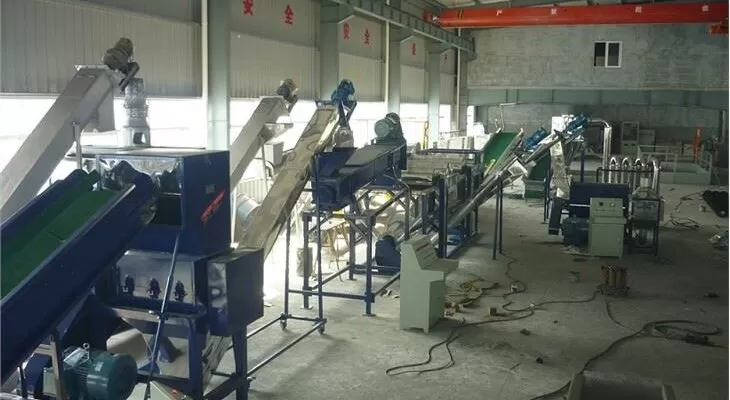Plastic waste has always been a headache, hasn’t it? Especially in a highly developed country like Japan, the challenges of plastic waste management are even more pronounced. Environmental pollution, resource wastage—these issues need urgent solutions. So, how is Japan tackling this problem? What new methods are they employing? Let’s dive in and find out.

In short, Japan has made significant strides in plastic waste management through technological innovation, strict regulations, and public participation. Let’s take a closer look.
As a manufacturer of plastic processing equipment, I understand the importance of plastic waste management. Japan’s approach is worth learning from. Below, let’s explore Japan’s new methods for managing plastic waste.
Why Is Technological Innovation So Important?
Technology-Driven Solutions
Japan’s innovation in plastic waste management is primarily reflected in technology. High-efficiency plastic decomposition technology and the development of new biodegradable plastic materials are testaments to technological progress. These technologies not only improve the efficiency of plastic waste treatment but also reduce environmental impact.
Robotics and Automation
Additionally, robotics and automation technology play a significant role in Japan’s plastic waste management process. These high-tech devices can efficiently sort and process various plastic wastes, increasing processing speed and accuracy.
How Important Are Strict Regulations?
Comprehensive Legal Framework
Japan’s legal regulations provide a solid foundation for plastic waste management. The government mandates strict compliance with waste separation and recycling regulations for both businesses and individuals. This not only increases recycling rates but also encourages companies to innovate environmentally friendly products.
Reward and Punishment Mechanisms
Furthermore, Japan implements strict reward and punishment mechanisms. Compliant businesses and individuals receive rewards, while violators face severe penalties. This system effectively raises public environmental awareness and participation.
What Is the Power of Public Participation?
Environmental Education
Japan’s success in plastic waste management is inseparable from public participation. The government and NGOs use various forms of environmental education to raise public awareness. From elementary school onwards, students receive systematic environmental education, laying the foundation for future environmental actions.
Community Activities
Community activities are also an essential part of Japan’s waste management. Residents regularly organize cleanup activities and actively participate in waste separation. This not only helps in waste management but also strengthens community cohesion.
What Are the Innovations in Sustainable Development?
Circular Economy Model
Japan also promotes a circular economy model. Companies innovate technology to convert plastic waste into new products, forming a cycle of resource reuse. This model not only reduces waste generation but also promotes sustainable economic development.
Development of New Materials
Japanese research institutions and companies are also actively developing new materials, such as biodegradable plastics and bioplastics. These new materials can reduce environmental pollution and, to some extent, replace traditional plastics.
How Does Smart City Waste Management Work?
Smart Waste Separation Systems
In smart city construction, Japan has introduced smart waste separation systems. Using IoT technology, residents can conveniently sort waste, and the system automatically identifies and processes different types of waste. This not only increases waste management efficiency but also reduces labor costs.
Data-Driven Decision Making
Moreover, Japan uses big data analysis to optimize waste management processes. By collecting and analyzing waste management data, the government can formulate more scientific and effective policies, improving resource utilization.
What Is the Role of International Cooperation?
Technology Export and Collaboration
Japan actively promotes plastic waste management not only domestically but also through international cooperation. By exporting advanced technologies and experiences to other countries, Japan contributes to global environmental protection and enhances its international influence.
Global Environmental Initiatives
Japan also actively participates in global environmental initiatives, collaborating with other countries to address plastic pollution. This global perspective and spirit of cooperation bring more possibilities to plastic waste management.
Conclusion
Japan’s innovative methods in plastic waste management not only provide effective solutions to environmental issues but also set an example for other countries. Through technological innovation, strict regulations, public participation, sustainable development, smart city construction, and international cooperation, Japan is leading the future of plastic waste management.
That’s it. Let’s learn from Japan and work together towards a cleaner, greener world.
